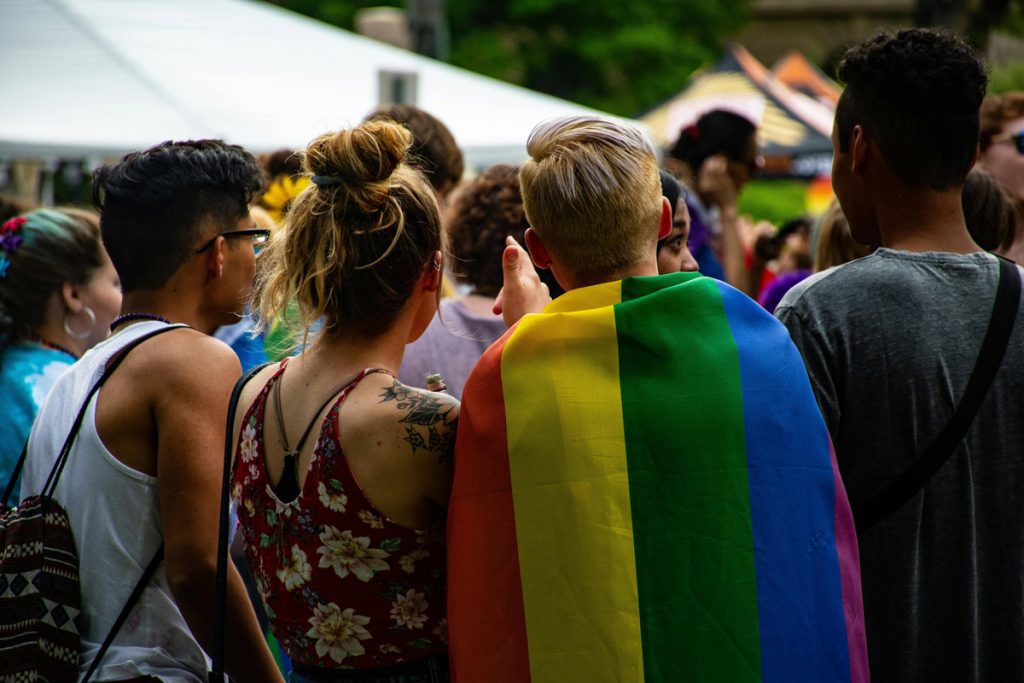In recent years, the discourse surrounding mental health has expanded to incorporate the concept of intersectionality, recognizing that individuals’ mental health experiences are shaped by a complex interplay of various identities.
Today, we’ll briefly go over the profound impact of intersectionality on mental health and explore ways to break barriers so that mental health services are more inclusive and accessible for all.
What Is Intersectionality?
First, it’s important to understand the origin of the term ” intersectionality.” The concept was coined by American critical legal race scholar Kimberlé Williams Crenshaw. It serves as a central framework for viewing the intricate interplay of various forms of inequality and disadvantage in a person’s life. Crenshaw describes it as a “metaphor for understanding the ways that multiple forms of inequality or disadvantage sometimes compound themselves and create obstacles that often are not understood among conventional ways of thinking.”
This concept highlights how aspects such as race, gender, sexual orientation, socioeconomic status, and ability intersect to shape individuals’ experiences and affect their access to resources and opportunities. In essence, intersectionality illuminates the complex and interconnected nature of social identities and systems of oppression, urging us to recognize and address the unique challenges faced by people with intersecting marginalized identities.
The Intersectional Lens: Unveiling Complexities
Intersectionality prompts us to recognize that people do not experience mental health issues in isolation but within the broader context of their intersecting identities. For instance, a person’s experience of depression may be compounded by factors such as racial discrimination, economic hardship, or ableism (discrimination against people with disabilities). These intersecting factors can exacerbate the severity of mental health challenges and hinder access to appropriate care and support.
Understanding these intersections is crucial for developing effective interventions and support systems that address the diverse needs of marginalized communities. By acknowledging the complex interplay of identity and social context, mental health professionals could tailor interventions to address not only the symptoms of mental illness but also the underlying social determinants that contribute to disparities in mental health outcomes. This holistic approach recognizes the interconnectedness of individual experiences and systemic factors, ultimately promoting more equitable and inclusive mental health services for all.
Breaking Barriers: Intersectionality in Mental Health Services
Common Barriers Amongst Diverse Groups
- Lack of insurance or underinsurance
- Access to mental health services is often hindered by financial hurdles, disproportionately affecting marginalized communities.
- Increased presence of mental health stigma
- Stigma surrounding mental health conditions is amplified within certain communities, deterring individuals from seeking help.
- Lack of diversity among mental health care providers
- The shortage of diverse mental health professionals contributes to cultural disconnects and inadequate care.
- Shortage of culturally competent providers
- Cultural competence is essential for effective treatment but is often lacking in mental health services.
- Increased likelihood of encountering language barriers
- Communication issues further impede access to mental health care for non-native speakers.
- Greater distrust in the healthcare system
- Historical injustices and systemic biases have eroded trust in healthcare institutions, particularly among marginalized groups.
- Inadequate support for mental health services in safety net settings
- Vulnerable populations — such as the uninsured and those on Medicaid — face limited access to mental health resources.
Ways To Help Create More Inclusive and Accessible Mental Health Services
- Account for structural and social determinants of health: Mental health programs should address the underlying social and economic factors that contribute to disparities.
- Incorporate marginalized perspectives: Involve marginalized individuals in the design and implementation of mental health initiatives to maintain relevance and effectiveness.
- Partner with expert specialists and dedicated organizations: Collaborate with organizations that specialize in serving specific communities to fill gaps in representation and expertise.
- Include community representation in recruitment and hiring: Diverse representation in mental health settings fosters cultural understanding and trust.
- Follow guidelines on cultural and linguistic appropriateness: Make mental health services and educational materials inclusive, respectful and accessible.
- Offer services in virtual spaces: In this digital age, online counseling services play a crucial role in expanding access to mental health support. Through online platforms, patients can access culturally competent therapists, receive support in their preferred language and engage with mental health resources tailored to their unique needs.
Embracing Intersectionality for Holistic Mental Health Care
Intersectionality challenges us to move beyond one-size-fits-all approaches to mental health and embrace the complexities of individuals’ lived experiences. By breaking down barriers and promoting inclusivity in mental health services, we could create a more supportive and equitable environment for people of all backgrounds to thrive mentally and emotionally.
Would you like to learn more? Check out the accompanying resource from Elevate Counseling for further information on intersectionality.
About the Author: Carolyn Ball, LCPC, is the founder of Elevate Counseling + Wellness. Her goal is to help people elevate their lives and reach their maximum potential. She has an understanding of the significance of mental health in a person’s overall well-being and is passionate about assisting others in living their best version of themselves.
Resources
- https://drive.google.com/file/d/1fCAHIEKxmXxwCH0OfIosFwPK-GdnZtuf/view?usp=sharing
- https://www.elevatecounseling.com/blog/microagressions-and-mental-health
- https://www.psychiatry.org/getmedia/bac9c998-5b2d-4ffa-ace9-d35844b8475a/Mental-Health-Facts-for-Diverse-Populations.pdf
Photo by Brett Sayles: https://www.pexels.com/photo/photo-of-crowd-of-people-1167034/
The opinions and views expressed in any guest blog post do not necessarily reflect those of www.rtor.org or its sponsor, Laurel House, Inc. The author and www.rtor.org have no affiliations with any products or services mentioned in the article or linked to therein. Guest Authors may have affiliations to products mentioned or linked to in their author bios.





